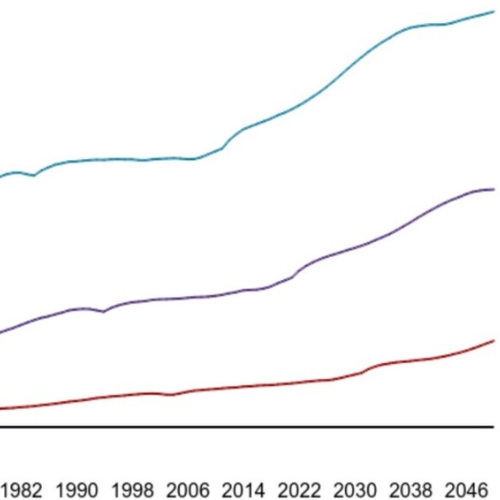Ageing is a universal process, accompanied by various physical, cognitive, and functional challenges. With increasing global life expectancy, enhancing the quality of later life has become a critical focus. One intriguing area of research involves the role of dietary habits in promoting healthy ageing. A recent study, published in Age and Ageing, explored the connection between nut consumption and disability-free survival in older adults, offering valuable insights into how simple dietary changes can make a significant difference in later years.
Ageing and the Importance of Diet
Ageing is associated with muscle loss, bone fragility, and cognitive decline, leading to a higher risk of disabilities and mortality. Oxidative stress, inflammation, and vascular impairments exacerbate these changes, often increasing the likelihood of chronic conditions like dementia and physical disabilities. Nutrition, a modifiable factor, plays a vital role in mitigating these risks.
Nuts are nutrient-dense foods, rich in proteins, unsaturated fats, fiber, vitamins (e.g., E, folate), and minerals (e.g., selenium, magnesium). Their composition makes them excellent candidates for supporting muscle maintenance, reducing inflammation, and potentially delaying age-related physical and cognitive declines.
Key Findings of the Study
The study analyzed data from 9,916 older adults aged 70 years and above, sourced from the ASPREE Longitudinal Study of Older Persons. Researchers categorized participants based on their nut consumption frequency:
- No/Infrequent: Never or rarely consuming nuts (1-2 times/month).
- Weekly: Consuming nuts 1-6 times per week.
- Daily: Consuming nuts every day.
The primary outcome measured was "disability-free survival," defined as the absence of mortality, dementia, or persistent physical disability.
Results Overview:
Reduced Risk with Daily Nut Consumption:
Participants consuming nuts daily showed a 23% lower risk of reaching the disability-free survival endpoint compared to those with infrequent or no nut intake.
Hazard Ratio (HR): 0.77 [95% CI: 0.61–0.98].
Dietary Quality Moderates Benefits:
The association was particularly significant among individuals with moderate dietary quality scores. In this group, daily nut consumption reduced the risk by 29% (HR: 0.71 [95% CI: 0.51–0.98]).
Suboptimal Diets Gain the Most:
Daily nut intake appeared to benefit those whose diets were neither exceptionally poor nor exceptionally high in quality.
Why Nuts?
The nutritional profile of nuts provides clues to their benefits:
- Protein and Amino Acids: Essential for muscle maintenance, particularly in older adults. Pistachios and peanuts are rich in free amino acids.
- Healthy Fats: Polyunsaturated and monounsaturated fats contribute to cardiovascular health by reducing inflammation and oxidative stress.
- Vitamins and Antioxidants: Vitamin E and polyphenols combat oxidative stress, a major contributor to ageing-related decline.
- Fiber: Promotes gut health, regulates glucose levels, and lowers cholesterol.
- L-Arginine: A precursor to nitric oxide, aiding vascular health and potentially reducing the risk of Alzheimer’s disease.
Study Design and Strengths
The study utilized data from the ASPREE trial, which involved community-dwelling older adults in Australia and the United States. Participants completed a detailed food frequency questionnaire, categorizing their nut consumption habits. Researchers employed Cox proportional hazards models to analyze the data, adjusting for various factors like socioeconomic status, physical ability, smoking, alcohol consumption, and diet quality.
Strengths of the study included:
- Large Sample Size: Nearly 10,000 participants provided robust data for meaningful analysis.
- Comprehensive Adjustments: Researchers accounted for confounding factors, ensuring reliable results.
- Focus on Healthy Ageing: Unlike studies targeting specific diseases, this research emphasized overall disability-free survival, offering broader implications for ageing populations.
Limitations and Areas for Future Research
Despite its strengths, the study had some limitations:
- Self-Reported Data: Nut consumption was self-reported, introducing potential recall bias.
- No Distinction in Nut Types: The analysis did not differentiate between types of nuts or their preparation methods (raw vs. roasted).
- Homogeneous Population: The cohort primarily included older Australians, limiting generalizability to other ethnic or cultural groups.
- Short Follow-Up Period: With a mean follow-up of 3.9 years, long-term effects remain unclear.
Future research could explore the impact of specific nut types, serving sizes, and preparation methods. Investigating genetic factors that influence the relationship between diet and healthy ageing could also provide deeper insights.
Practical Implications
The findings highlight the potential of incorporating nuts into daily diets to support healthy ageing, especially for individuals with moderate dietary quality. Here are some practical tips:
- Incorporate a Variety of Nuts: Almonds, walnuts, pistachios, and peanuts offer unique nutritional benefits.
- Mind the Portion Sizes: Nuts are calorie-dense, so moderation is key.
- Choose Minimally Processed Options: Opt for raw or lightly roasted nuts without added salt or sugar.
- Combine with Other Healthy Foods: Pair nuts with fruits or yogurt for a balanced snack.
Broader Implications for Public Health
Encouraging nut consumption could be a cost-effective public health strategy to improve dietary quality and extend healthy lifespan. Campaigns could focus on raising awareness about the benefits of nuts, particularly among older adults with suboptimal diets. Policy measures, such as subsidies for healthy foods or nutritional education programs, could further support these efforts.
The study underscores the potential of daily nut consumption to promote a disability-free life in older adults. By focusing on a simple dietary change, it offers a practical and accessible approach to enhancing the quality of ageing. For those seeking to make meaningful changes to their health, incorporating nuts into daily meals could be a small step with significant benefits.
As the global population continues to age, embracing evidence-based dietary strategies like this will be essential in fostering healthier, longer lives. Further research will undoubtedly continue to uncover more about the intricate relationship between nutrition and healthy ageing, but the message from this study is clear: a handful of nuts a day might keep disability at bay.
The study was led by Alice J Owen from School of Public Health and Preventive Medicine of Monash University.








